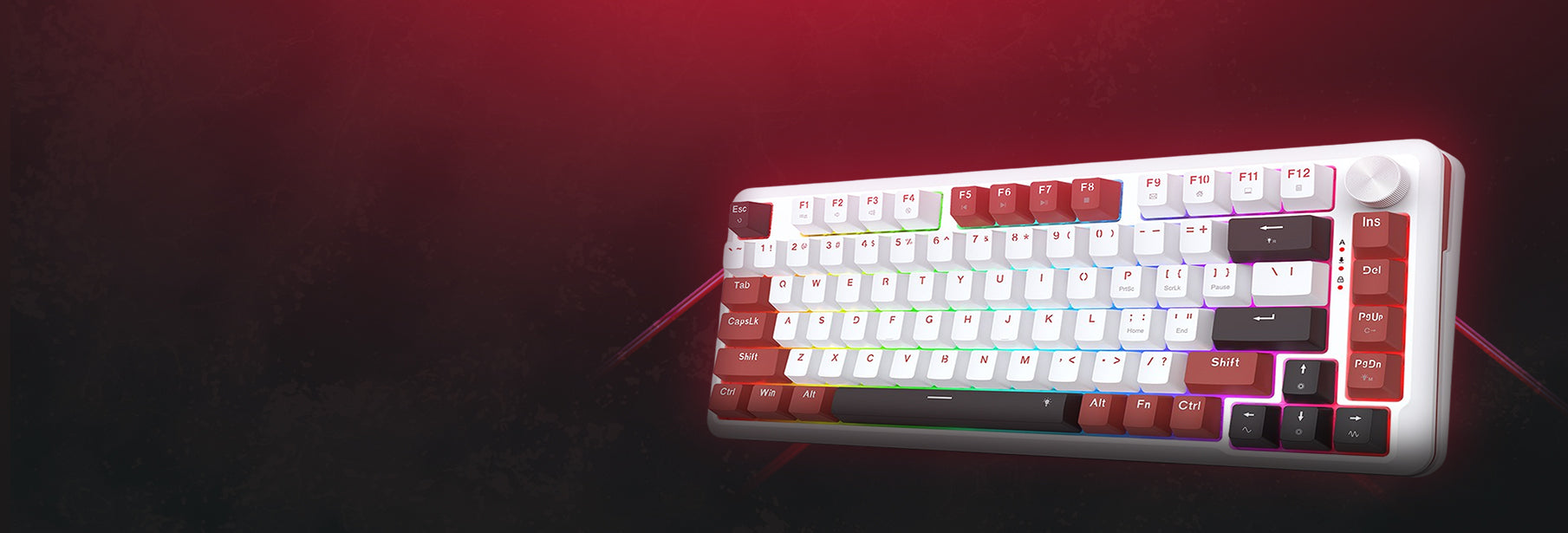Mechanical keyboards, loved for their durability, tactile feedback, and customization, aren’t all the same. Magnetic switches, a newer innovation, offer a unique typing experience. But how do they differ from traditional mechanical switches, and how can that help you choose the right one?
What Are Mechanical Keyboards?
Before exploring magnetic switches, it’s essential to understand mechanical keyboards. Unlike membrane keyboards, which use a single rubber sheet to register key presses, mechanical keyboards feature individual switches for each key. These switches consist of components like a spring and stem, working together to register key presses. The type of switch used greatly influences the typing experience, affecting factors such as actuation force, tactile feedback, and noise level.

Redragon K721WRB-RGB Mechanical Keyboard with Magnetic Switches
Traditional Mechanical Switches:
Traditional mechanical switches, like the popular Cherry MX series, come in various types, each offering a distinct typing experience.
These switches rely on physical contact points to register key presses, which can wear over time. Additionally, their actuation point is fixed, meaning you can’t adjust how far a key needs to be pressed to register.
Key Differences: Magnetic Switches vs. Traditional Mechanical Switches
| Switch Type |
Traditional Switches |
Magnetic Switches |
|
Actuation Mechanism |
Rely on physical contact points to register key presses. |
Use magnets and Hall effect sensors, eliminating the need for physical contact. |
|
Customizability |
Fixed actuation point. |
Adjustable actuation point, allowing for a more personalized typing experience. |
| Durability | Prone to wear and tear over time due to physical contact. |
More durable due to the lack of physical contact points. |
| Typing Experience | Offer a variety of tactile and auditory feedback options (e.g., clicky, tactile, linear). |
Typically offer a smoother, more consistent keystroke with less noise. |
| Price | Generally more affordable and widely available. |
Tend to be more expensive due to the newer technology and added features. |

Which One Should You Choose?
|
Choose a Magnetic Switch Keyboard If: |
Choose a Traditional Mechanical Keyboard If: |
| You value customizability and want to adjust the actuation point to suit your typing style. |
You enjoy the tactile feedback and audible click of traditional switches. |
|
You’re looking for a durable keyboard that’s less prone to wear and tear. |
You’re on a budget and want a more affordable option. |
| You prefer a smoother, quieter typing experience. | You prefer a wider variety of switch types to choose from. |
Conclusion
Both magnetic and traditional mechanical keyboards have unique strengths: magnetic switches deliver a futuristic, customizable, and durable feel, while traditional switches offer varied tactile and auditory feedback. The best choice comes down to your preferences, typing style, and budget. Whether you’re a gamer, programmer, or just love mechanical keyboards, there’s a perfect switch for you.

